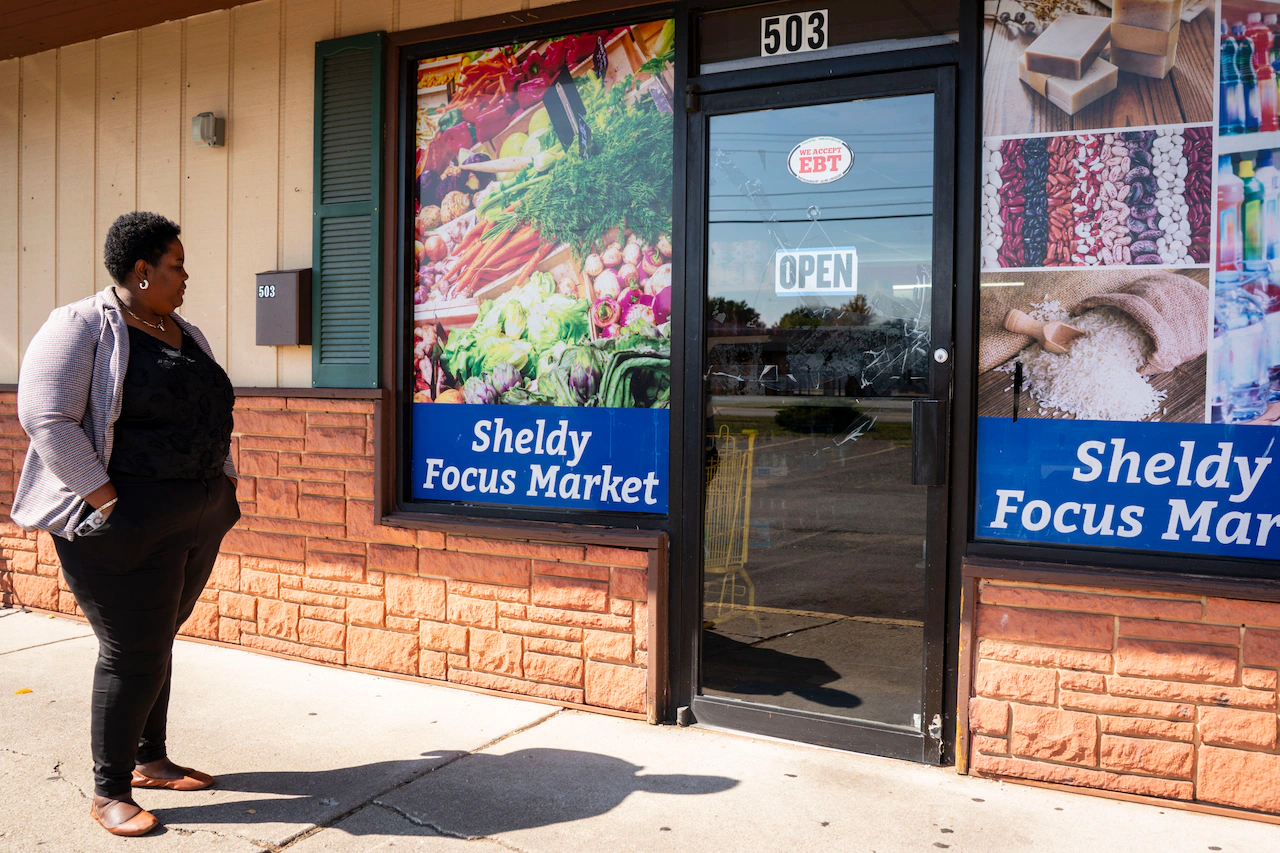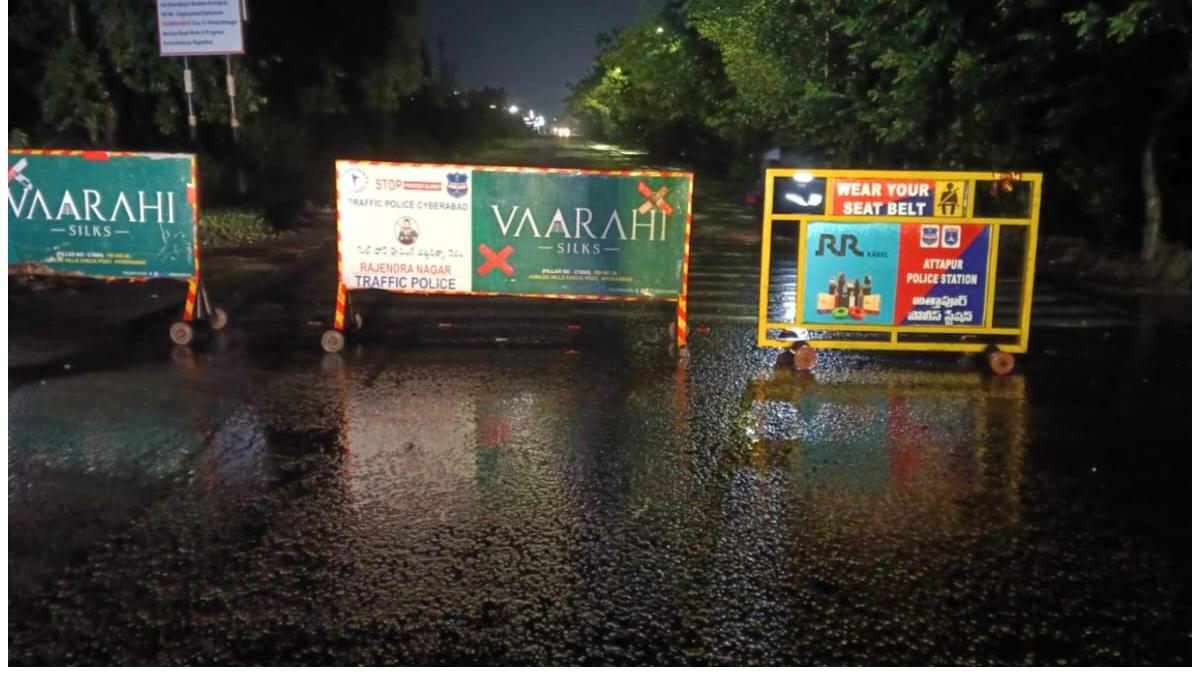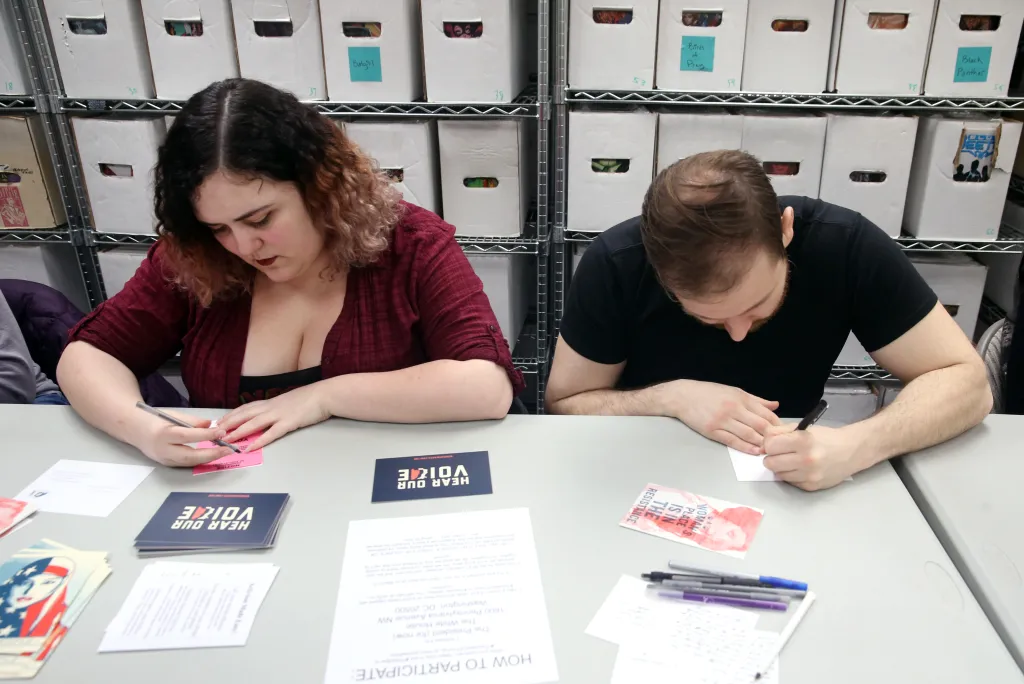
COLDWATER, MI – A rural Michigan town has become a hub for Haitians who fled escalating gang violence in their home country.
In recent years, hundreds of Haitians have settled in Coldwater, through a humanitarian program called Temporary Protected Status, or TPS. This allows immigrants to legally live and work here if their countries are unsafe.
But TPS has been in the crosshairs under President Donald Trump’s goal to deport a million people a year.
This has shaken Coldwater, an agricultural town that’s now home to growing pockets of immigrant communities, leading to job losses at a major pork processing plant and leaving Haitians uncertain about their future.
Here are four takeaways from the original reporting about what’s unfolding in Coldwater:
1. TPS up in the air
The United States has offered Temporary Protected Status, TPS, to Haitians since a catastrophic earthquake struck in 2010. Since then, the crisis has deepened with escalating gang violence, political instability and extreme poverty.
“There is no safety in Haiti,” said Vladimir Jeudy, a Haitian who now runs a staffing agency to help immigrant workers in Coldwater.
Despite that, U.S. Department of Homeland Security Secretary Kristi Noem tried to revoke TPS for Haiti earlier this year saying it was “safe for Haitian citizens to return home.”
But a federal judge blocked the move in early September, saying the conditions are “so dangerous that even the State Department advises against travel to their home countries.” Haiti is currently under a Level 4: Do Not Travel warning, the most serious advisory.
This provides some relief, but TPS is still set to expire for Haitians in February.
If it’s not extended, this would leave 330,000 Haitians without legal status. They’ll need to figure out another option to stay legally or be forced to return to a country that’s largely under gang control.
2. Job losses at a pork plant
Uncertainty about TPS has struck the Haitians who moved to Coldwater after Clemens Food Group opened a large pork processing plant in 2018.
Clemens has grown rapidly over the years, becoming the largest employer in Branch County and leaning on Haitians, in part, to process thousands of hogs a day.
The meat industry relies heavily on immigrants, with more than a third of employees being foreign-born, but sudden changes to programs like TPS have cut into this workforce.
At Clemens, a former general manager reportedly said earlier this year that the Coldwater plant employed about 400 Haitian TPS holders. If they lost their status, he warned it would have a “tremendous impact” on the plant’s daily operations, according to The Daily Reporter.
Since then, some Haitians say they’ve lost their jobs, now surviving on savings and trying to figure out a path forward.
“It’s sad for us,” said one former employee, 21, who asked not to be identified because of his immigration status. “We’re just trying to work and have a better life because our country is really bad at this moment. It’s really dangerous.”
3. Immigrants land in Coldwater
Major employers have attracted immigrants to Coldwater, a town of roughly 14,000.
Yemeni migrants started moving there to work at a local foundry in the 1960s. Since then, this population has bloomed into the largest Arab community in Michigan, leading to the recent construction of a new $3.5 million mosque.
A large tomato greenhouse, Maroa Farms, has also brought growing numbers of Hispanic workers to the community.
And Haitians are the latest group to settle into Coldwater, where about 12% of the population was born in other countries as compared to 7% in Michigan.
“We changed from being a sleepy farming community to a very diverse population,” said Kathie Bappert, executive director of the Coldwater Community Center
4. Haitians create community in Coldwater
For many Haitians, Coldwater has become their community.
Shelda Gusteme opened the first Haitian grocery store in town three years ago to bring imported goods closer to home. Before that, she says Haitians were driving six hours roundtrip to Indianapolis to buy Caribbean produce, like green plantains.
It wasn’t long before Jeudy opened another imported goods store about three miles away.
The Coldwater Community Center has started teaching some Haitians how to sew scrubs, so they can own their own business. Roughly 400 Haitians are also in a WhatsApp group that Gusteme uses to share information about the community, her store and immigration policy.
But the threat to TPS has left her status in doubt.
“After February, I don’t know what I’m going to do,” said Gusteme, a TPS holder who has lived the United States with her husband and two U.S. citizen daughters since 2018.



